Research & Development
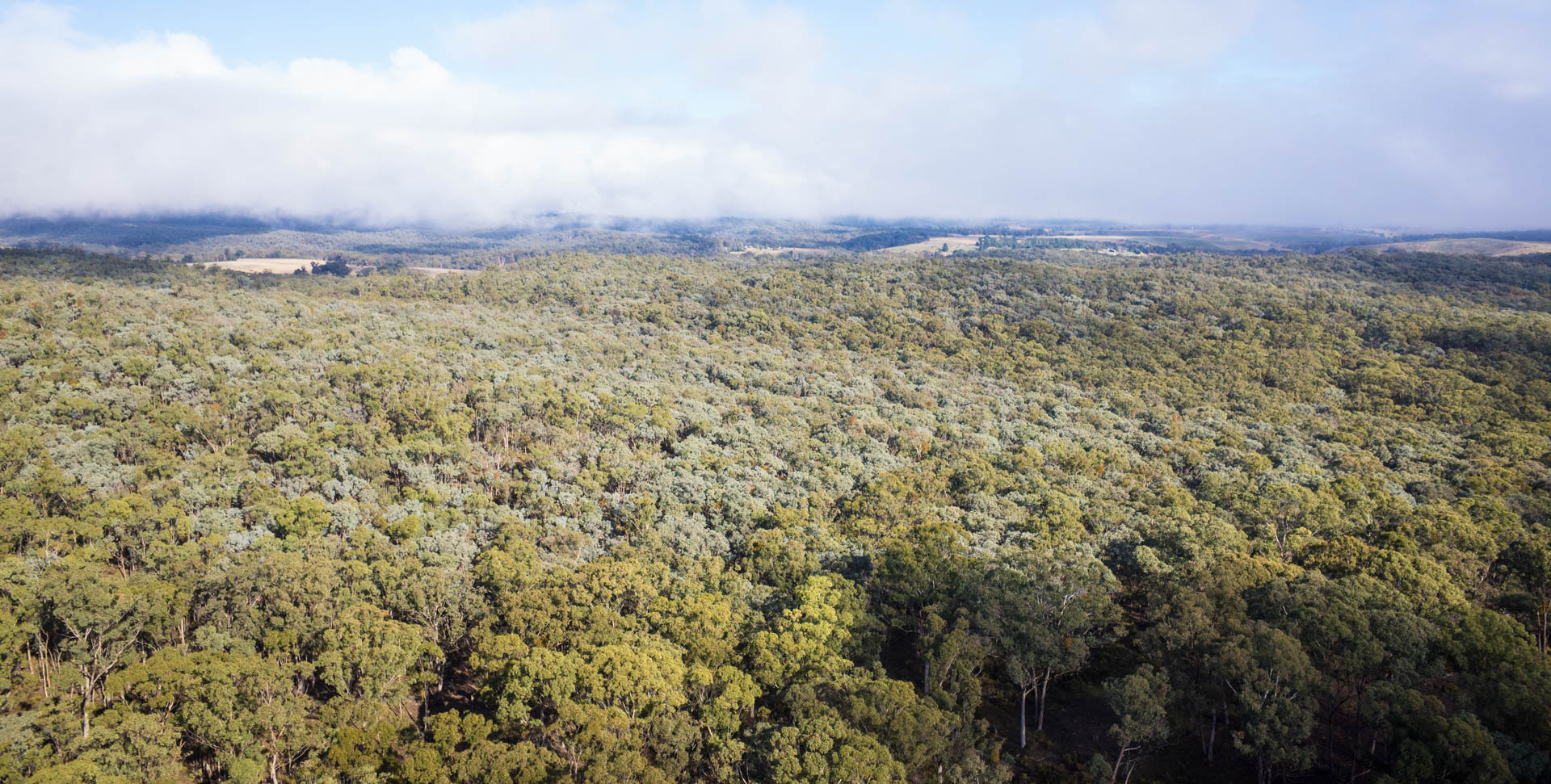
Our research projects are centred around forests and the many and varied ways they can contribute to a sustainable vision for our culture within the evolving global context.
Regenerative Forestry
Since the development of the Fryers Forest Eco-Village in the mid 90’s, we have been managing Box/Ironbark forest using Permaculture principles to improve ecological values including biodiversity and fire resilience.
Early stages of the management saw data gathering on species diversity, density and standing volume to provide a baseline.
Thinning of the dense post mining regrowth private forest the company manages has (when compared to a control) decreased stem density, increased mean stem diameter, increased mean canopy diameter and height and mitigated fire risk metrics.
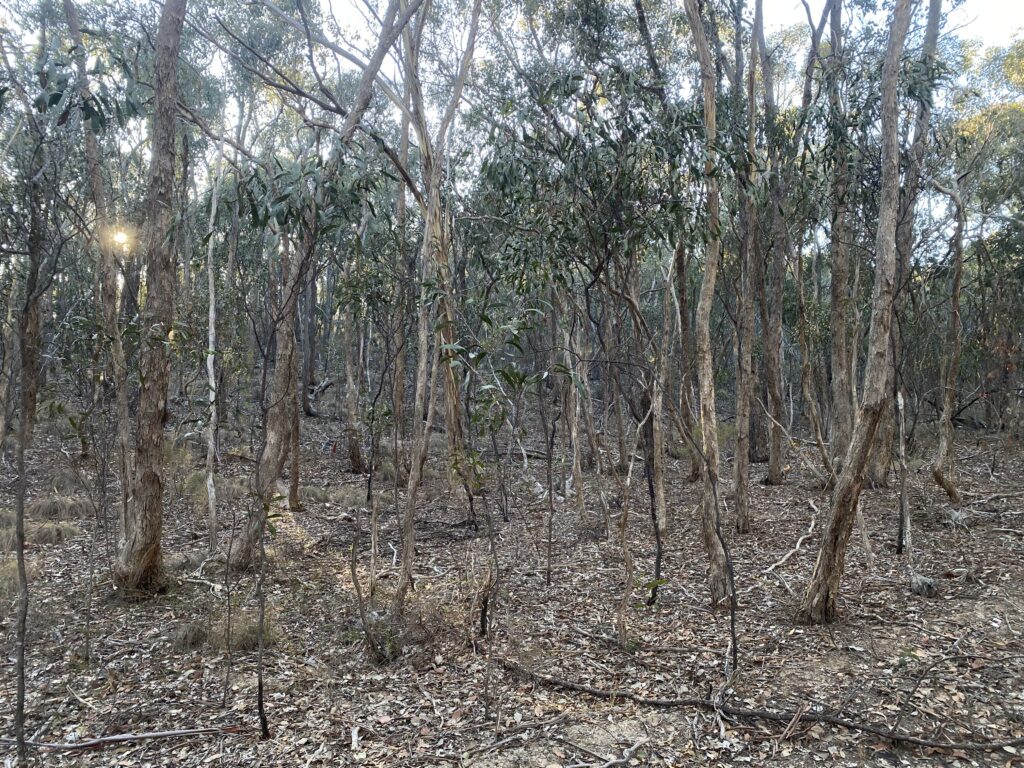
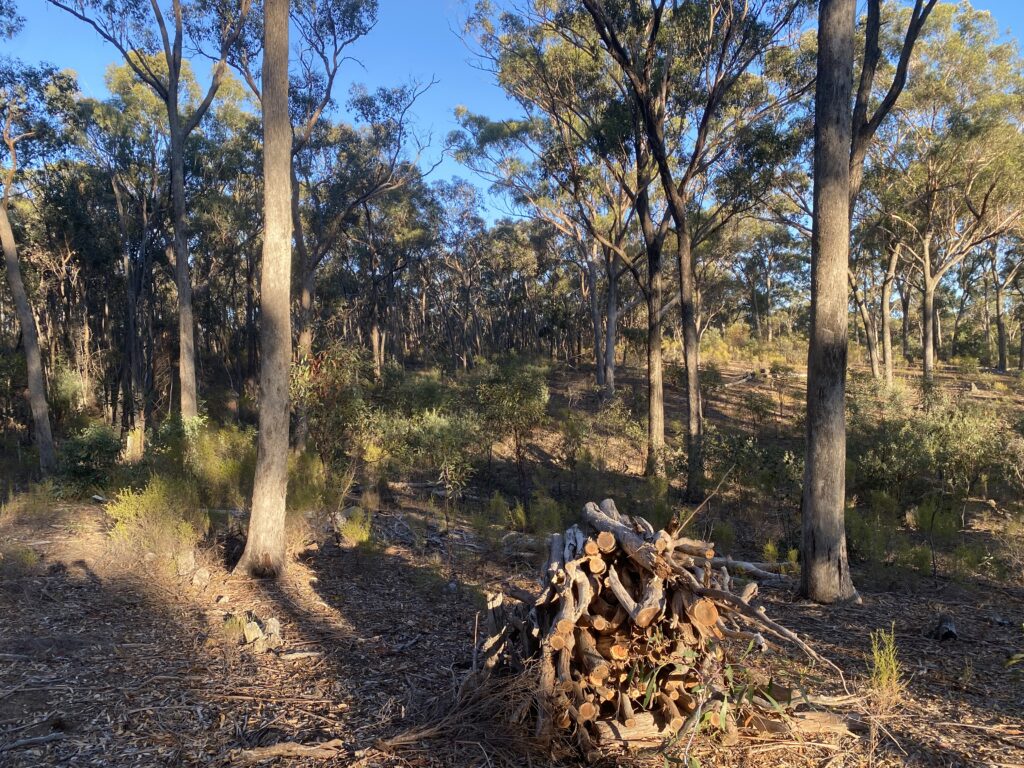
Management and measurement of these private forest plots is ongoing.
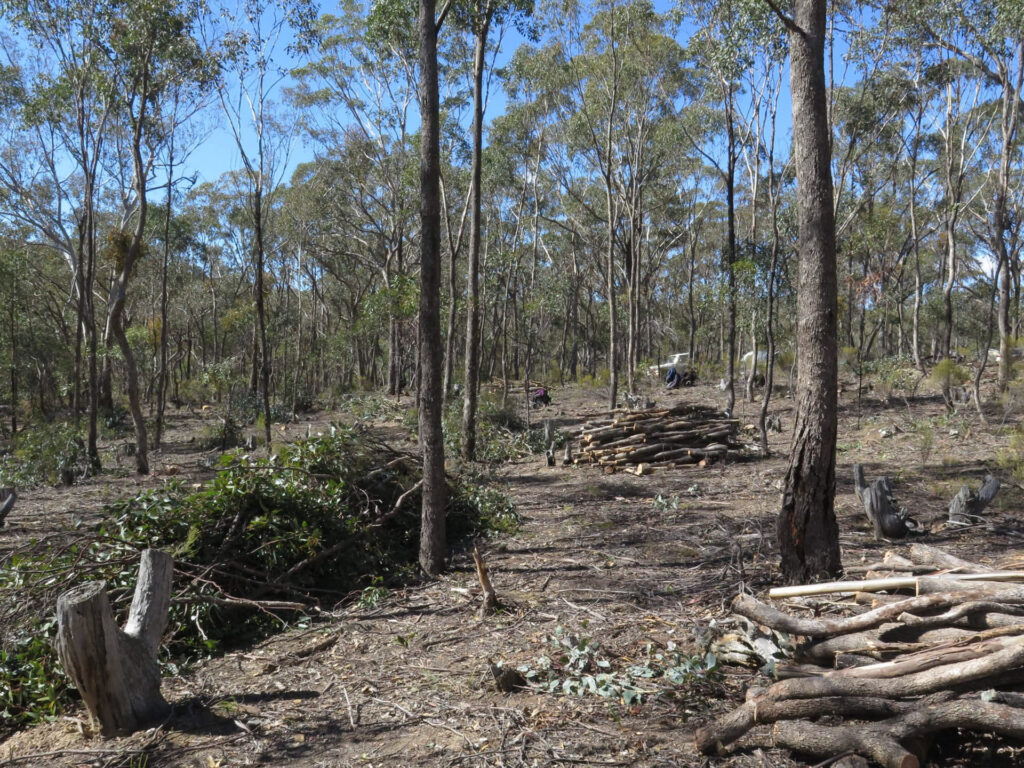
Development of tools and techniques for effective management have also been under development.
The research initiatives and forest thinning practices started by David Holmgren during the development of the Fryers Forest Eco-Village began this journey and provide a backdrop to a new chapter for the company that focuses on energy generation from woody waste (biomass) byproducts from the thinning process.
While the core focus is on development of tools to generate electricity and biochar from woody waste from the thinning process, an expanded and formalised research program for the accompanying forest management practices is also in development.
As of 2025, a partnership with local First Nations led forest management initiatives (DJAARA Forest Gardening) are being developed due to the close alignment of the practices and aims. It is our intent to formalise and make publicly available research data and outcomes from this partnership.
DJAARA’s Forest Gardening Strategy (Galk-Galk Dhelkunya) is a beautiful and practical articulation of people in the landscape caring for country.
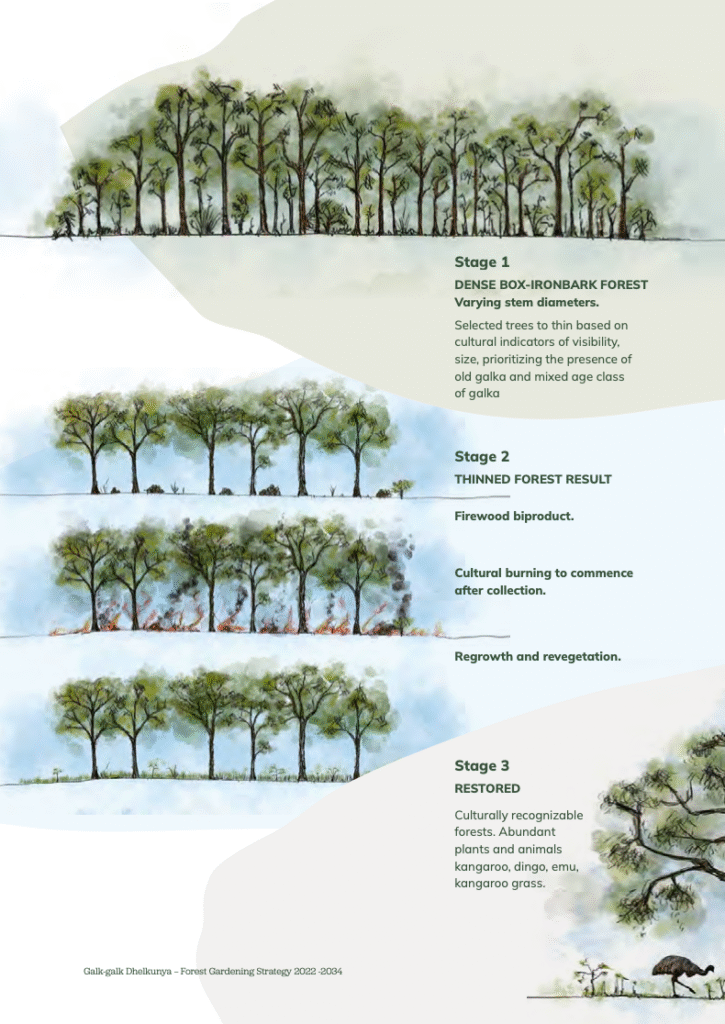
Biomass Energy
Forests gather and store the sun’s energy in biomass (wood). This stored energy can be used to provide energy to support sustainable living when coupled with regenerative forest management. If we do not manage fuel build-up in our forests, fire hazard becomes a problem. Regenerative forest management often selectively thins vegetation, with the primary goal of improving key ecological metrics, which produces a range of woody byproducts. A small fraction of the byproducts will be of high value for uses such as poles, posts, art and musical instrument making, while at least some will be of low value that is often left in the forest. Often referred to as “Slash”. The slash can pose significant fire hazard because it contains so much energy. We attempt to retain higher grade byproducts for their more valuable applications. The Permaculture principles of Produce No Waste inspires a constant cycle of better making use of waste streams. There is a fraction of slash that wee are yet to effectively use. This is primarily the wood of diameter less than 50mm from the heads of the thinnings. Current practices have been to stack this slash on contour and use various mechanical methods (eg chainsaw and slasher) to reduce volume to accelerate biological decomposition.
In a major new research initiative driven by Oliver Holmgren, we aim to use part of this fraction of the slash to product electricity and biochar with the primary in goal being to power the forest management process from this energy.
Currently fossil energy sources such as diesel and petrol are required to power the forest management equipment. We are currently developing a relationship with All Power Labs, a Californian company with substantial experience in small scale biomass to electricity and biochar production systems.
This project aims to test the hypothesis that regenerative forest management practices can be powered from woody waste byproducts of the process using small scale biomass to electricity technology.
The project aims to: integrate small scale biomass to electricity generation equipment, commercial available from All Power Labs, into an in-house custom build hybrid electric forest management vehicle.
This Biomass Hybrid Electric Vehicle will be the proof of concept and a key part of testing the hypothesis.
Preparations for this significant undertaking have been in preparation since 2020.
A research trip to California to work with All Power Labs is scheduled for early 2026 as the initial testing of the hypothesis.
A dedicated facility for the project is under construction.
More details will be forthcoming.
We are currently accepting angel investment/donations toward the research.
Investment opportunities based on a prospectus will become available as the development and testing cycle progresses but are currently not available.
Off-Grid & low tech energy systems
Off-Grid or autonomous electrical systems are like mini electrical grids. Designing and managing these systems is more involved than standard residential or commercial power systems. They also offer a fantastic opportunity to balance varying production and consumption. This experience can improve energy literacy and understanding of the challenges we face on the road from a fossil fuelled grid toward a renewable energy grid.
Batteries are the weakest link from a technical and cost standpoint in most off-grid cases.
In 2015 Oliver Holmgren installed an off-grid power system in the Fryers Forest R & D forest management workshop that used a mixture of new and second hand materials. The ex data centre batteries used were second hand. The energy needs of the workshop required a more capable battery in 2017. At which time lithium batteries for off-grid systems were very uncommon. Commercial installers in the area were sticking to lead as the “tried and true” system. Few commercial system were available. We chose to pilot a battery that was from a company almost completely unheard of in Australia at the time, BYD. A lot has changed since then.